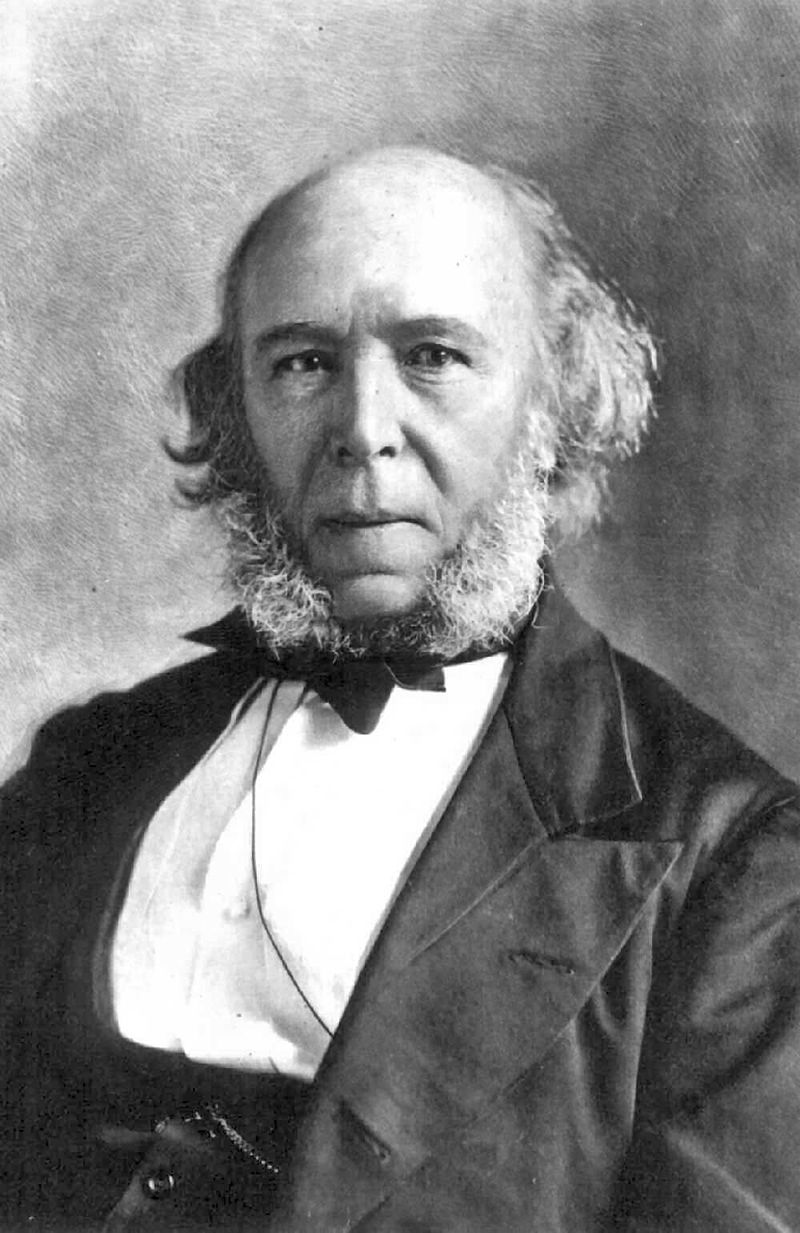Sociologists - Herbert Spencer
“The great aim of education is not knowledge but action.”
Summary
- Spencer was a British sociologist
- He was a structural functionalist and an advocate of the evolutionary theory
- Presented the organic analogy and concept of ‘Social Darwinism’
- Advocated Laissez-faire politics and Non-interference

Introduction
- Spencer was born in England (1820-1903) and is known as the second founder of sociology.
- Spencer was also a structural functionalist but also advocated the evolutionary theory.
- While Comte had actively participated to change society by introducing a religion, Spencer believed sociologists should not guide social reform. He believed that it would interfere with the natural process of evolution of a society.
- Spencer coined the term “survival of the fittest”.
- He did armchair philosophy (like Comte) instead of conducting scientific research.
Theory of Evolution
According to Spencer, every society evolves from:
- Simple –> Complex
- Homogeneous –> Heterogeneous
Spencer divided evolution into two categories:
- Simplicity –> Complexity
- Militant society –> Industrial society
1. Simple to Complex Evolution
Spencer said that there are 4 stages to evolution:
- Simple society is the most basic society made up of the family unit.
- Compound society is a large number of simple societies that form a clan.
- Doubly Compound society is a large number of compound societies or clans that come together to form a tribe.
- Trebly Compound society is made up of a large number of tribes that come together to form a nation state.
2. Militant to Industrial Evolution
-
In militant societies, units are forced to cooperate and obey the commands of the superior officer. Militant societies have a centralized government structure which dominates over the organizations of the society.
-
In contrast, industrial societies have voluntary cooperation with a democratic and devolved government structure. The state plays very little role in an industrial society.
| Militant Society | Industrial Society |
|---|---|
| Defensive/Offensive | Peaceful |
| Compulsory Cooperation | Voluntary cooperation |
| State over Individual | Individual over state |
| Public Organizations | Private Organizations |
| Centralized State | Decentralized State |
| Protectionism | Free Market |
| Economic Autonomy | Economic Interdependence |
| Patriotism | Independence |
| Inheritance of Positions | Movement between Positions |
| Inheritance of Religion | Less Religious Importance |
| Inheritance of Hierarchy | Less Importance of Hierarchy |
Organic Analogy
Spencer presented the organic analogy where he compared the human society to a biological organism. Spencer considered various parts of society like state and economy to be like organs (heart, lung, kidneys, etc.) which work interdependently and are necessary for the whole organism to function properly.
Social Darwinism
Spencer took the biological evolution described by Charles Darwin and applied it to sociology.
Social Darwinism is based on two principles:
- Survival of the Fittest
- Principles of Non-interference
1. Survival of the Fittest
Spencer believed that nature automatically removes its weaker parts and so does society. People who are poor, dumb, disabled are less fit and should be left behind for the greater progress of society.
2. Principle of Non-interference
Spencer supported laissez-faire policies of the state and believed the job of the state was to protect itself from any external threats. He believed that the state should not waste money on social institutions like education or on the poor. In his eyes, an ideal society would be where individuals pursued their interests without any hinderance by the state.
Criticism
- Organic analogy is vague and not exactly comparable. If an organ like the heart dies, the whole organism dies. However, if an institution falls, the whole society doesn’t suffer the same fate. The society continues to live on.
- Organism is a concrete being while the concept of a society is abstract.
- Spencer’s advocacy of laissez-faire politics and survival of the fittest is considered callous and dangerous by many people.
Bibliography
- The Proper Sphere of Government
- Social Statics
- Education: Intellectual, Moral and Physical
- The Synthetic Philosophy

Leave a comment